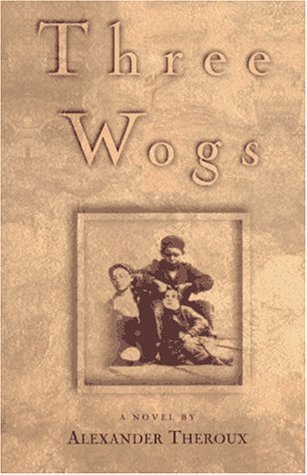What do you think?
Rate this book


216 pages, Paperback
First published January 1, 1972

The utter impossibility of alteration, determined through centuries of unquizzical resignation and fortified by a trust in the fancy of a capable God, makes of the grey day in London an inexorability that translates into the accepted gratitude of a traditional pain known to an untraditional pleasure not.Apparently this reviewer (and does one begin to suspect the God-like powers of editors spurned?) held to the mistaken preference that Theroux should have said, “The English can’t change their rainy weather, and so they accept it.”
I have a very amplified prose style. You will understand little of this white paper, reader, and sympathize with less, in assuming outright that nothing worthwhile can proceed from that extremity. I want to make a distinction between two rhetorical terms: inflatio and amplificatio. Amplificatio is not a fault. I would plump for it being a virtue. I come down on the side of amplificatio--as did Burton, Montaigne, Rabelais, Sterne, and others memorably innumerable. It is a group in advocate of the many-membered period. I excerpt myself from this list in order to win you over right away. --A.L.T.
The theatre, with its smell of weak lilac and cheap caporal, was the perfect hush in soft red lights that Mrs. Proby loved: funereal, anonymous, the nethermost retreat where the tired, amorous, and lonesome could sleep or fondle or expatiate in ones or twos or threes, far from the madding crowd and unbothered in the reliquary of pure imagination.
The sound of water was coming from some sourceless spot, a broken aqueduct, perhaps, or maybe some conduit water spilling out of an ancient furrow or some lead Roman leakage of Londinium. Roland blinked his eyes to adjust them to the darkness, then disappeared into a stairway like a bit of dirt into a Hoover—and stepped into the damp cellar. The cold light of tiny bulbs, blue and pennysized, strung out between eerie shadows and revealed a hushed ash-grey tomb, a cell of must, cannibalized, as if by Mulciber, into a warehouse for those who work by night – the dark, witching hours that slowly pass, soured, it always seems, by those deep and unassignable final causes that desperately remind us of our odd naked frailties and whisper to us we owe God a death.
Next to one of the columns sat a small table where one could purchase, for a shilling each, leather bookmarks embossed in pinchbeck, shiny postcards of the Family Windsor, and small pamphlets which stapled together the church’s history…and prose accounts of various legends more than willingly enlarged upon, as was usual in these churches all over London, by little pie-faced but dedicated shawlies who sat lost in their mufflers, blueing in the cold, chatting with Japanese businessmen and troops of German girl scouts, and recommending this or that with chirps of delight and sad smiles—grumbling mercilessly only in the off chance they should be locked in overnight, a not infrequent hazard for the napping octogenarian placed in the same corner with long dead ladies and snipenosed, marmoreal queens.